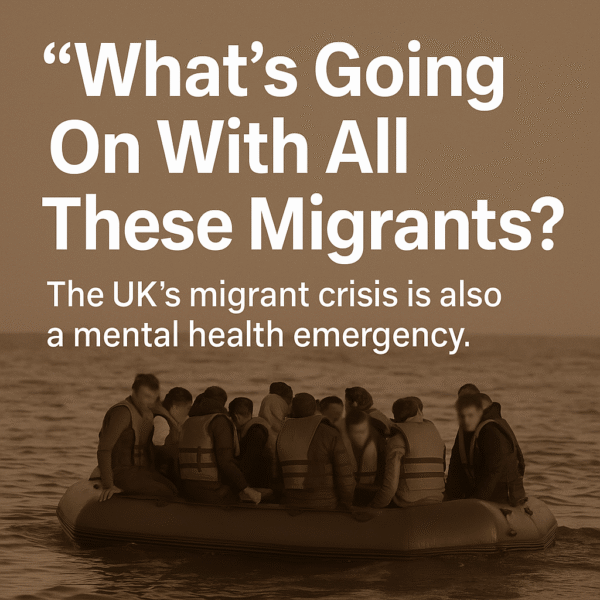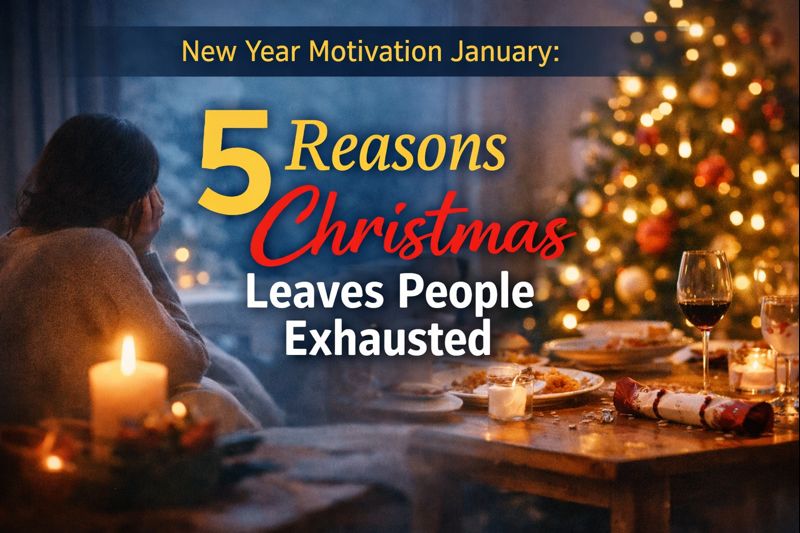The UK’s migrant crisis is also a mental health emergency.
A recent visit to my mum in Sheffield brought this question home—literally. She was settled on her favourite settee, the telly murmuring in the corner, and a stack of Sheffield Star newspapers balanced on the armrest. Then out of nowhere, she blurted it out: “What’s happening with all those migrants?”
Not with judgement—just quiet confusion, the kind that signals something deeper. A shift. A saturation point. She reminded me of her own arrival during the Windrush years—promised opportunity but met with hostility. And here we are again, another generation asking uneasy questions about belonging, borders, and who gets to feel safe.
And it’s not just her. Conversations with friends, colleagues, even those who say they’re not political often circle back to the same topic. Rising costs. Stretched services. Stories about hotels. The sense that something isn’t working. Beneath the surface of these conversations sits a shared anxiety: about security, fairness, and the future—for everyone.
The English Channel has become the lightning rod for this debate. Technically, Britain and France share responsibility for policing it—12 nautical miles of territorial waters each. Yet France only commits to 300 metres from its coastline. Back in 2023, the UK agreed to pay France $576 million over three years to tighten patrols. Meanwhile, by 2024/25 Britain was spending £108 million a month housing asylum seekers in hotels. All this against the backdrop of rising council taxes, a £20 billion black hole in the national budget, and warnings of further interest rate hikes.
Stories like the Bell Hotel in Epping Forest have only deepened the tension. When councils challenge the use of local hotels for housing asylum seekers, and courts rule against them, it sends a strong message in some quarters: the government looks after migrants more than it looks after its own people. Even if untrue, the perception itself is powerful.
Maslow’s hierarchy of needs reminds us that safety, security, and belonging are the foundations of wellbeing. When people feel those needs aren’t being met—when housing is insecure, when bills rise, when healthcare is harder to access—anger and fear fill the gap.
Anyone who has read The Tipping Point by Malcolm Gladwell will recognise some of the dynamics at play here. Gladwell—also known for Outliers, Blink, and David and Goliath—argues that small changes, repeated often enough, can create big social shifts. Writing this blog, I was reminded of several of his key ideas.
First, the Law of the Few: social change often comes through a handful of influential voices. In today’s context, a few loud media outlets or political soundbites can disproportionately shape how millions perceive migrants.
Second, the Stickiness Factor: for ideas to spread, they need to be simple and memorable. Phrases like “illegal migrants” stick; they are easy to repeat, but they reduce complex human trauma to a label. Meanwhile, describing this as a “mental health emergency” is harder to package, even though it is closer to the truth.
Finally, the Power of Context: behaviour is shaped by the environment around us. When people feel unsafe—rising bills, lack of housing, overstretched NHS—they are primed to scapegoat. Anger at migrants in this context is less about personal prejudice and more about unmet needs.
All of this suggests we may be reaching a social tipping point: where repeated negative framing of migration risks creating not just policy shifts, but cultural hardening, neighbour against neighbour, and worsening mental health across communities. And mental health pays the first price.
It’s no surprise that many conversations—whether with friends, colleagues, or even people who aren’t political—soon turn to “illegal migrants.” It’s become the shorthand for frustration about the state of things. But when we only frame it this way, we miss the human truth.
Because in the middle of these debates are people—fleeing wars, persecution, violence, and poverty. Many leave loved ones behind. Some lose them en route. Trauma begins long before the Channel crossing, but it doesn’t end at Dover. It lingers in crowded hostels, in lengthy asylum interviews, in sleepless nights replaying what was left behind.
Take A, a father who fled conflict after losing his brother. He arrived in the UK with nothing but a backpack and hope, only to be housed in a hotel for months on end, waiting for decisions he cannot influence. Every new delay feels like another blow, while his young son wakes most nights crying from nightmares he cannot soothe.
And then there’s L, a local single parent in Barnsley, working two jobs just to keep the lights on. She scrolls the news and hears about millions spent on migrant housing, while her own rent climbs and school waiting lists grow. She doesn’t hate anyone—but she feels invisible, unheard, pushed aside. That frustration seeps into every conversation, leaving her more anxious, more exhausted, less hopeful.
Refugees and asylum seekers are five times more likely to experience serious mental health conditions compared with the general population. Rates of PTSD reach up to 30% in some groups. Depression, anxiety, and sleep disorders are common. Yet access to trauma-informed, culturally sensitive support is painfully limited. Long waiting lists, stigma, language barriers—all of it compounds the suffering.
But here’s the other truth: we’re not doing well ourselves. Mental health across the UK is already fraying. Rising living costs. Services stretched to breaking point. Loneliness. Burnout. Children anxious before school. Men drinking to disappear. Communities worn down by uncertainty.
When we fail to care for our own wellbeing, it becomes harder to extend care outward. And when fear and division dominate, everyone suffers—migrants and locals alike. Trust erodes. Communities fracture. Conversations become harsher. And mental health quietly collapses in the background.
We must stop treating migration as a one-sided problem. It’s not ‘them’ or ‘us.’ It’s all of us—and how we create a society that values wellbeing, dignity, and respect.
This isn’t about politics. It’s about people. About pain. And about the possibility of healing.
We all need to feel safe, heard, supported. Not just to survive—but to live. Because if we cannot learn to care for one another, then no border, no budget, and no policy will protect us from the real crisis—the one unfolding in our minds.
PS: If this piece made you pause, consider sharing it. Not to argue. But to reflect. Because sometimes, understanding starts with a question.
Mike Lawrence: Your Guide to Health & Wellbeing
I’m Mike Lawrence, a passionate advocate for mental health and wellbeing. After overcoming significant health challenges, including brain surgery, I’ve dedicated myself to a journey of self-improvement and helping others thrive. From heart-pounding skydives for charity to soul-enriching travels in Thailand, my experiences have shaped my approach to holistic health.
I love sharing the lessons I’ve learned from these adventures and the powerful audiobooks I devour. Let’s explore the paths to better mental and physical health together. Embrace life’s adventures with enthusiasm and resilience, and remember—you’re never alone on this journey!
Feel free to email me at hello@mikelawrence.co.uk or connect with me on LinkedIn. For more in-depth insights and inspiring stories, read my latest blogs here. Together, let’s create a healthier, happier future!





